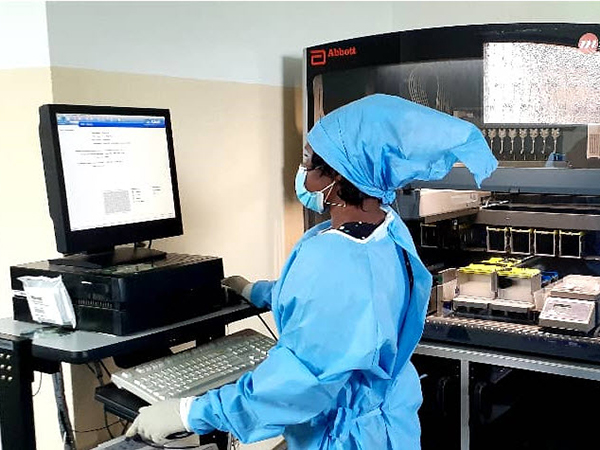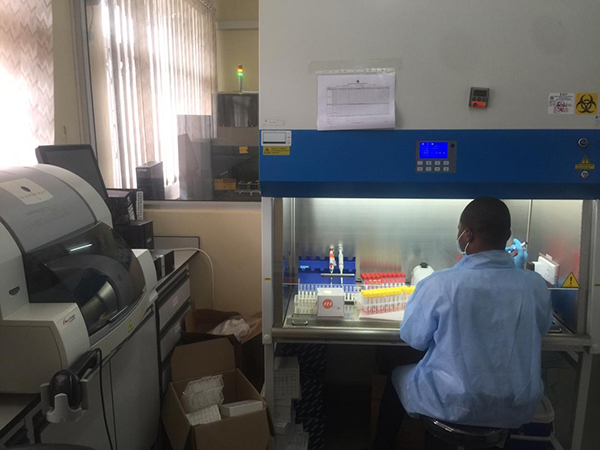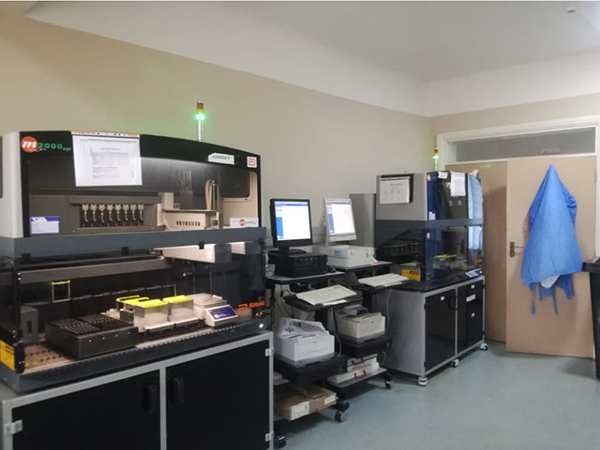Malawi Achieves International Accreditation for CDC-supported Laboratories | CDC
Summary
- Four Malawian laboratories supported by CDC achieve international accreditation.
- CDC and partners currently support 66 laboratories and a sample transportation network system in Malawi.
- Partners quickly adjusted to COVID-19 demands to enhance the existing laboratory system.
Malawi Achieves First International Accreditation with Four CDC-supported Laboratories

Dream Balaka lab director preforming daily maintenance. Photo by Fredrick Namaya
For the first time in Malawi, four laboratories have earned international standard accreditation. Medical laboratories are key partners in patient safety and can influence medical diagnoses. The quality of laboratory services is a major factor with direct impact on the quality of health care.
The Malawian laboratories earned International Organization for Standardization 15190 accreditation by meeting rigorous standards that ensure consistent, accurate, and reliable testing and safety. This was achieved through the Southern African Developmental Community Accreditation Services (SADCAS) with support from the U.S. Centers for Disease Control and Prevention (CDC), the U.S. President’s Emergency Plan for AIDS Relief (PEPFAR), and the United States Agency for International Development (USAID).
This accomplishment was celebrated with a ceremony in Lilongwe, Malawi on July 14 and attended by the Malawi Minister of Health Khumbidze Kandodo Chiponda and United States Ambassador to Malawi, Robert Scott.
A decade of work pays off

HIV National Reference laboratory: lab technologist preparing dried blood samples for HIV viral load test. Photo by Taziona Ntonya
CDC, through PEPFAR, introduced international quality management system frameworks through laboratory assessments, training, mentorship, and supervision to help achieve the accreditation. As a result, the four supported laboratories obtained SADCAS accreditation were: the National HIV Reference Laboratory in HIV viral load and serology tests, Blantyre Dream, Balaka Dream, and Partners in Hope.
CDC and PEPFAR, in partnership with the University of Maryland at Baltimore, currently support 66 laboratories and a sample transportation network system that covers all 28 districts in Malawi. Since 2004, the U.S. Government has invested over $70 million in the network through CDC, USAID, and PEPFAR. This health partnership continues to prove vital especially during the COVID-19 pandemic.
Quickly adjusting to COVID-19 demands, network partners in collaboration with the Ministry of Health enhanced the existing laboratory system to meet the needs of the citizens of Malawi. This was attained by:
- Supporting 12 high throughput molecular laboratories to test more than 100,000 COVID-19 samples
- Training 66 laboratory technologists to conduct SARS-CoV-2 PCR testing
- Procuring and distributing 25,000 laboratory reagents and 36,000 sample collection kits
- Coordinating COVID-19 proficiency testing to maintain the highest quality standards

Dream Blantyre molecular laboratory with m2000sp machine. Photo by Judith Tembo
In conjunction with PEPFAR and USAID, CDC continues to work on accreditation efforts with the goal of six laboratories per year achieving international standards.